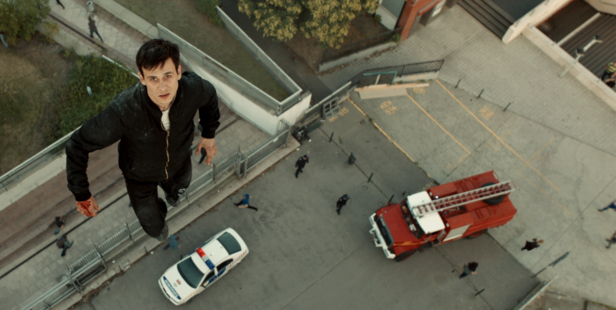Hungarian director Kornél Mundruczó made a bold breakthrough on the arthouse circuit with 2014’s White God, which concerned a mistreated dog leading a canine uprising. With Jupiter’s Moon, he’s back with another high-concept story and back in social allegory mode.
A young migrant fleeing his home in Syria, Aryan (Zsombor Jéger) is separated from his father while sneaking into Hungary by boat. A trigger-happy border patrolman shoots him down, but the young man rises from the dead: blood from his wounds starts to levitate, and soon enough his whole body does too, allowing him to soar out of relative harm’s way to a refugee camp.
It’s there that he encounters the disgraced Dr. Stern (Merab Ninidze), who sneaks the young man out of the camp and takes him under his wing, seeing the financial benefit of having a miracle worker on tap; as well as levitation, Aryan’s skill set also includes a kind of gravity control, though it’s confined to, say, whatever room he happens to be in.
Unfortunately for the pair, Dr. Stern leaves his mobile phone, containing a video of Aryan’s gifts, at the camp, where it’s found by the cop who shot Aryan. And then there’s an aspiring terrorist who’s swiped Aryan’s passport…
This all might make it sound like Jupiter’s Moon is packed to the brim with ideas. Unfortunately, it’s more of a case of the same few visual cues repeated ad nauseam, and ultimately little in the way of a message at all when it comes to its political bent.
Despite its superman being a Syrian refugee, the film takes no political side on the topic of human traffic, seemingly satisfied with an increasingly dull noir riff with a dash of Christ symbolism. There’s fuzziness to its overall purpose, beyond being a showcase for initially impressive but eventually stale long take set-pieces that might land Mundruczó a blockbuster gig some day. But since these scenes recall so many other films – Children Of Men, Chronicle, Inception – they’re not even that distinctive a calling card.
